 Your new post is loading...
 Your new post is loading...
ChatGPT est victime d’une nouvelle faille de sécurité. En exploitant cette brèche, il est possible d’extraire des données sensibles concernant des individus en s’adressant au chatbot d’OpenAI.
Via Gust MEES
Roughly two-thirds of test digital vaccination applications commonly used today as safe passes and travel passports exhibit behavior that may put users' privacy at risk.
The risks are substantial as these apps are required for large populations worldwide, allowing hackers an extensive target base.
Digital passports
Digital passport apps store proof of a person's COVID-19 vaccination status, full name, ID number, date of birth, and other personally identifiable information (PII) encoded in a QR code or displayed directly in the app. Learn more / En savoir plus / Mehr erfahren: https://www.scoop.it/t/securite-pc-et-internet/?&tag=Privacy Learn more / En savoir plus / Mehr erfahren: https://www.scoop.it/topic/securite-pc-et-internet/?&tag=Coronavirus
Via Gust MEES
As IoT devices like Amazon Echo become more and more popular, it isn’t unusual for users to re-sell them. Indeed, it’s increasingly common to come across them on eBay or even at the occasional yard sale. Amazon suggests that, when users are done with a product, they factory reset the device so as to erase any personal information stored within it before sending it back out into the world.
However, it would appear that simply resetting your device won’t actually expunge that data from the face of the Earth and that reselling your device could hypothetically lead to your old information getting boosted.
Researchers with Northeastern University recently spent 16 months buying and reverse engineering 86 used Amazon Echo Dot devices in an attempt to understand any security deficiencies they might have. Learn more / En savoir plus / Mehr erfahren: https://www.scoop.it/t/securite-pc-et-internet/?&tag=Internet+of+things https://www.scoop.it/topic/securite-pc-et-internet/?&tag=iot
Via Gust MEES
Just about anyone who's online is in some way interacting with a Google product. Here's how Google tracks you -- and what you can do about it.
Via Peter Azzopardi, Jim Lerman, Evdokia Roka
In response to the disclosure of vulnerabilities in Tor's design, researchers at MIT have created Riffle, a system that allegedly provides better security and uses bandwidth more efficiently.
Via Gust MEES
Text is a prevalent form of communication on Facebook. Understanding the various ways text is used on Facebook can help us improve people's experiences with our products, whether we're surfacing more of the content that people want to see or filtering out undesirable content like spam. in french >>> http://www.futura-sciences.com/magazines/high-tech/infos/actu/d/internet-deeptext-facebook-veut-lire-comprendre-tout-ce-vous-ecrivez-63022 With this goal in mind, we built DeepText, a deep learning-based text understanding engine that can understand with near-human accuracy the textual content of several thousands posts per second, spanning more than 20 languages. DeepText leverages several deep neural network architectures, including convolutional and recurrent neural nets, and can perform word-level and character-level based learning. We use FbLearner Flow and Torch for model training. Trained models are served with a click of a button through the FBLearner Predictor platform, which provides a scalable and reliable model distribution infrastructure. Facebook engineers can easily build new DeepText models through the self-serve architecture that DeepText provides. ...
Via Jacques Urbanska, JP Fourcade
A recent study shows that if someone drops a USB drive, it will almost certainly be picked up, and there’s a nearly 50 percent chance it will be plugged in.
Via Tom D'Amico (@TDOttawa)
It’s inspiring — in a crazy sort of way — to consider how efficient Google can be in keeping track of information about you. Today, Google announced the launch of “Your Timeline,” a tool in Google Maps that shares with you all the places you have been. It works if you chose to store your Location History with Google.
Product manager Gerard Sanz detailed the feature in blog post, as the company gradually rolls out the timeline for Maps users.
It could definitely serve as a convenience. What with our busy lives, sometimes it’s hard to remember all the stops along the way. Google sees Your Timeline as a way to quickly recall, and even view your past whereabouts.
Via Gust MEES
Le brouillard enveloppant nos données personnelles se lève enfin. Les internautes ont compris qu'il était possible de de les monétiser.
Via Datarmine
Are you concerned about your online privacy? Have you checked the privacy settings for all of your social media platforms? Personal social media management is now more important than ever. As marketers, we're usually out there promoting our business, yet we still need to be conscious of our privacy. In this article you'll discover how…
Via Tom D'Amico (@TDOttawa)
Le sociologue Antonio A. Casilli dénonce dans une interview au Monde le discours et les nouvelles normes véhiculés par Facebook.
Via BeerBergman
|
Privacy-centric search engine DuckDuckGo is working on an "everyday" desktop browser, according to CEO Gabriel Weinberg. In a blog post, Weinberg said the company is building a desktop app "from the ground up" using OS-provided rendering engines rather than Chromium, the browser codebase underpinning Google Chrome, Microsoft Edge, and other browsers. - This will allow DuckDuckGo to "strip away a lot of the unnecessary cruft and clutter that's accumulated over the years in major browsers," Weinberg said.
- The CEO noted that the browser will have default “robust privacy protection," meaning users won't have to turn it on in security settings.
- Like its mobile version, the desktop browser will also contain a Fire button to erase stored data, tabs, and browsing history.
- Early tests have shown the browser is “significantly faster” than Google Chrome, he claimed. It's now in closed beta testing on macOS, with no announced release date yet.
- Also in the blog post, Weinberg went through the company's achievements in 2021. One of those was reaching 150 million downloads of its privacy apps for iOS and Android and Chromium extensions.
Via Philippe J DEWOST
This site compares secure messaging apps from a security & privacy point of view. These include Facebook Messenger, iMessage, Skype, Signal, Google Allo, Threema, Riot, Wire, Telegram, and Wickr. The best secure messaging app?
Via Philippe J DEWOST
Introduction par Monsieur Philippe Busquin, Ministre d’Etat et Commissaire européen chargé de la Recherche scientifique de 1999 à 2004
L'Internet promeut nos libertés et est source de possibilités extraordinaires. En même temps, les technologies de l'information et de la communication créent des risques majeurs vis à vis de nos libertés et de la protection de notre vie privée.
La surveillance sous toutes ses formes est devenue commune et les grands acteurs de l’internet et les États ne s’en privent pas. Les révélations de Snowden ont ouvert bien des yeux. Les technologies qui permettent de nous espionner peuvent pourtant aussi servir à nous protéger. Mais où trouver l’équilibre ?
Via Jacques Urbanska
If your organisation does business within the European Union or collects data on European citizens you’ve likely been told about the newly approved EU General Data Protection Regulation (GDPR), which will come into force in spring 2018.
The GDPR will increase privacy for individuals and give regulatory authorities greater powers to take action against businesses that breach the law.
Are you prepared to take the steps necessary for compliance? Here’s a brief overview of everything you need to know about the new Regulation and what it means for your business. Learn more / En savoir plus / Mehr erfahren: https://gustmees.wordpress.com/2013/12/21/privacy-in-the-digital-world-shouldnt-we-talk-about-it/
Via Gust MEES
Cryptolunch.lu, la cybersécurité à la portée des citoyens
Cryptolunch.lu est un évènement gratuit, organisé au Luxembourg, dédié à l'information des citoyens européens à la protection de la vie privée et la sécurité en ligne.
L'utilisation massive des Technologies de l'Information et de l'Information a fait évoluer les limites entre vie privée et vie publique. Alors que nous sommes toujours plus connectés, une masse exponentielle de données personnelles nous concernant est échangée, tant en ligne que hors ligne. La vie privée est pourtant un droit qu'il est important de défendre.
Organisé en partenariat entre la maison de l'Europe et Securitymadein.lu, la finalité des cryptolunch est de mettre à disposition un lieu de rencontre où les citoyens européens auront l'opportunité de s'entretenir avec des experts en sécurité afin d'obtenir des informations sur des sujets tels que la vie privée et la sécurité numérique.
Créé afin de permettre à un public non spécialisé d'obtenir des réponses claires et simples à ses questions, ce rassemblement est idéal pour répondre aux attentes de profils très variées en termes de sécurité sur Internet. Learn more: http://www.scoop.it/t/securite-pc-et-internet/?tag=ENCRYPTION
Via Gust MEES
Ce n’est pas entre régulation et absence de régulation que nous avons à choisir. Le code régule. Il implémente – ou non – un certain nombre de valeurs. Il garantit certaines libertés, ou les empêche. Il protège la vie privée, ou promeut la surveillance. Des gens décident comment le code va se comporter. Des gens l’écrivent. La question n’est donc pas de savoir qui décidera de la manière dont le cyberespace est régulé : ce seront les codeurs. La seule question est de savoir si nous aurons collectivement un rôle dans leur choix – et donc dans la manière dont ces valeurs sont garanties – ou si nous laisserons aux codeurs le soin de choisir nos valeurs à notre place.
Car c’est une évidence : quand l’État se retire, la place ne reste pas vide. Les intérêts privés ont des objectifs qu’ils vont poursuivre. En appuyant sur le bouton anti-Étatique, on ne se téléporte pas au Paradis. Quand les intérêts gouvernementaux sont écartés, d’autres intérêts les remplacent. Les connaissons-nous ? Sommes-nous sûrs qu’ils sont meilleurs ?
Via BeerBergman
Here's what Google's sharing with advertisers about you, and how to get Google to stop.
Via Tom D'Amico (@TDOttawa)
(TIm Berners-Lee) "He called for an internet version of the Magna Carta, the 13th century English charter credited with guaranteeing basic rights and freedoms.
Concerns over privacy and freedom on the internet have increased in the wake of the revelation of mass government monitoring of online activity following leaks by former US intelligence contractor Edward Snowden.
A ruling by the European Union to allow individuals to ask search engines such as Google to remove links to information about them, called the “right to be forgotten”, has also raised concerns over the potential for censorship.
“There have been lots of times that it has been abused, so now the Magna Carta is about saying...I want a web where I’m not spied on, where there’s no censorship,” Berners-Lee said.
The scientist added that in order to be a “neutral medium”, the internet had to reflect all of humanity, including “some ghastly stuff”.
Via BeerBergman
Facebook déploie un nouveau bouton, "Ask", qui permet de demander à un utilisateur de demander des informations personnelles à un autre. Zoom sur les astuces des géants du Web pour vous stalker.
Via Club de TeleMatique
|



 Your new post is loading...
Your new post is loading...



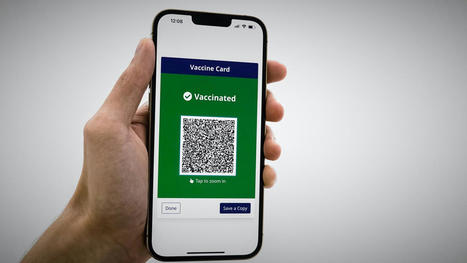






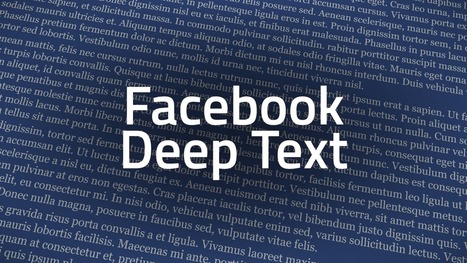

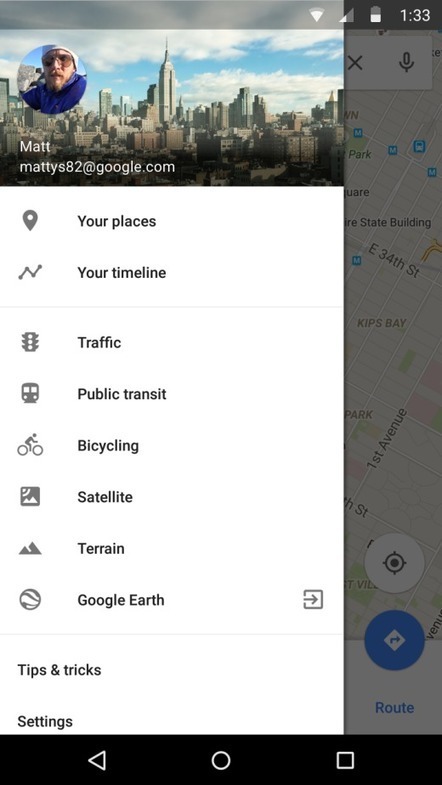






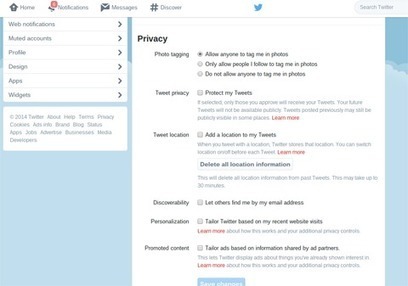
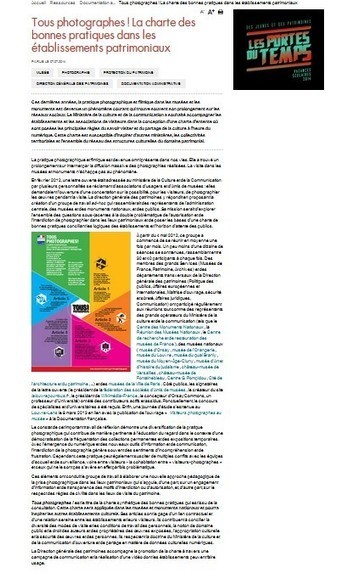

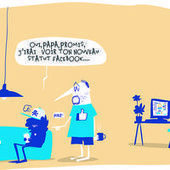
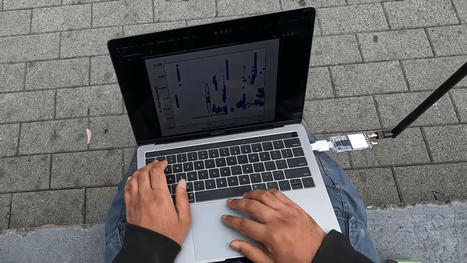


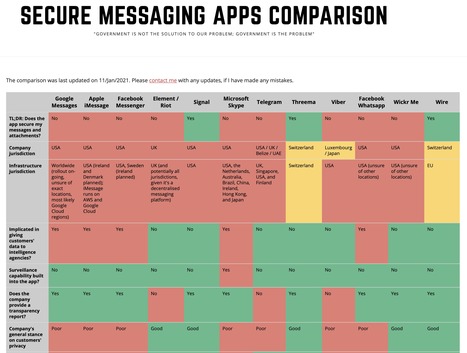







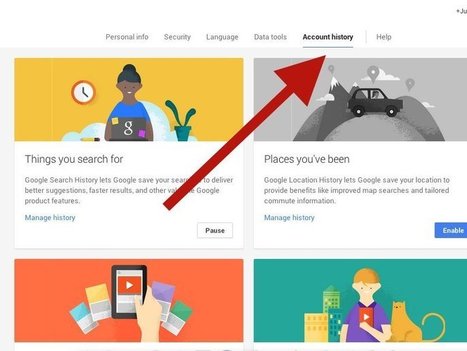

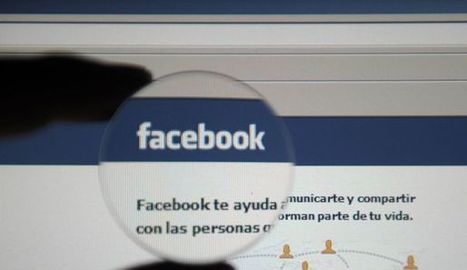





ChatGPT est victime d’une nouvelle faille de sécurité. En exploitant cette brèche, il est possible d’extraire des données sensibles concernant des individus en s’adressant au chatbot d’OpenAI.
Learn more / En savoir plus / Mehr erfahren:
https://www.scoop.it/topic/21st-century-innovative-technologies-and-developments/?&tag=ChatGPT
https://www.scoop.it/t/21st-century-innovative-technologies-and-developments/?&tag=AI
https://www.scoop.it/topic/21st-century-innovative-technologies-and-developments/?&tag=Ethics